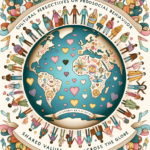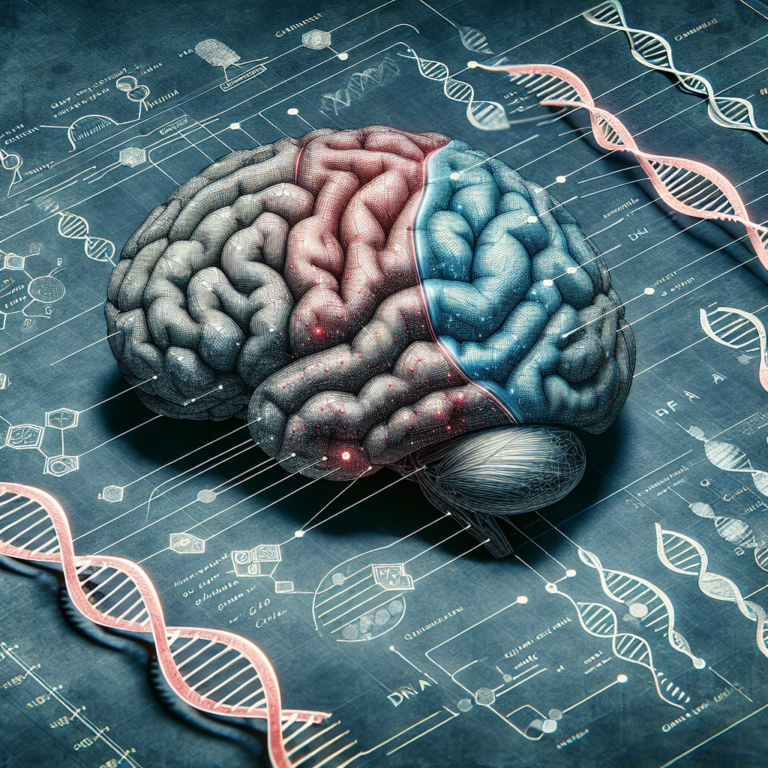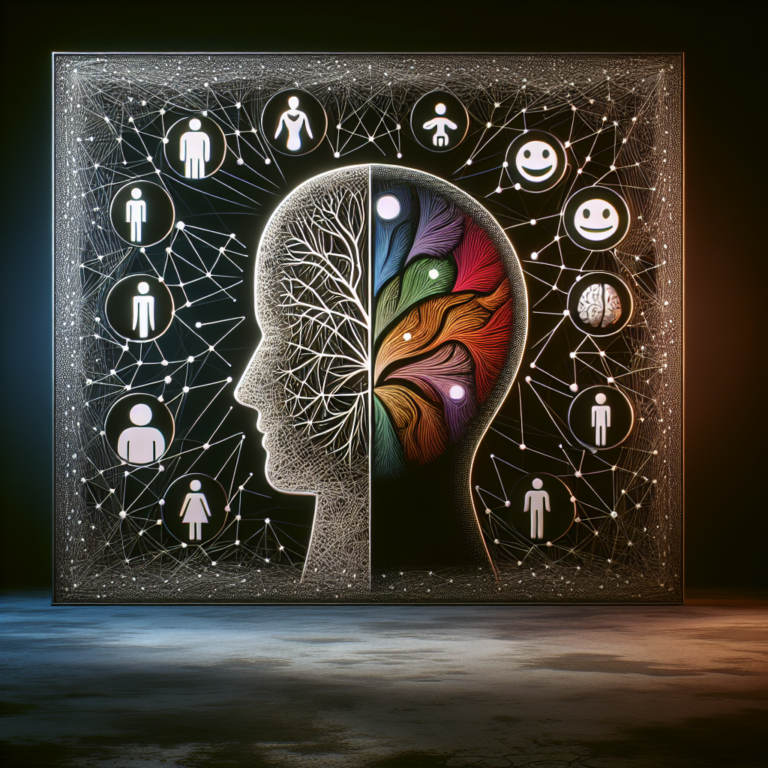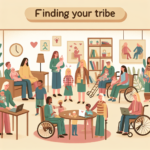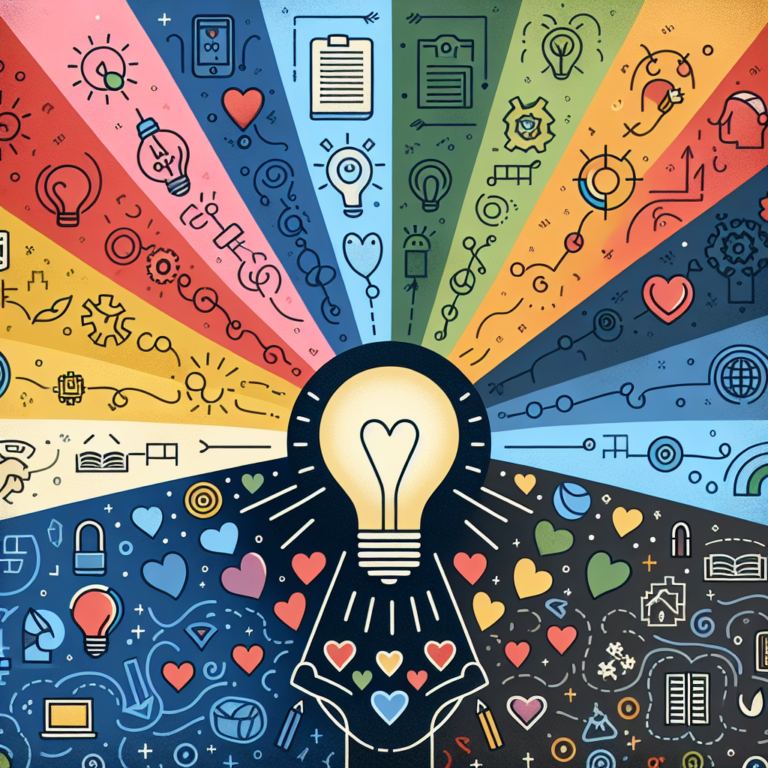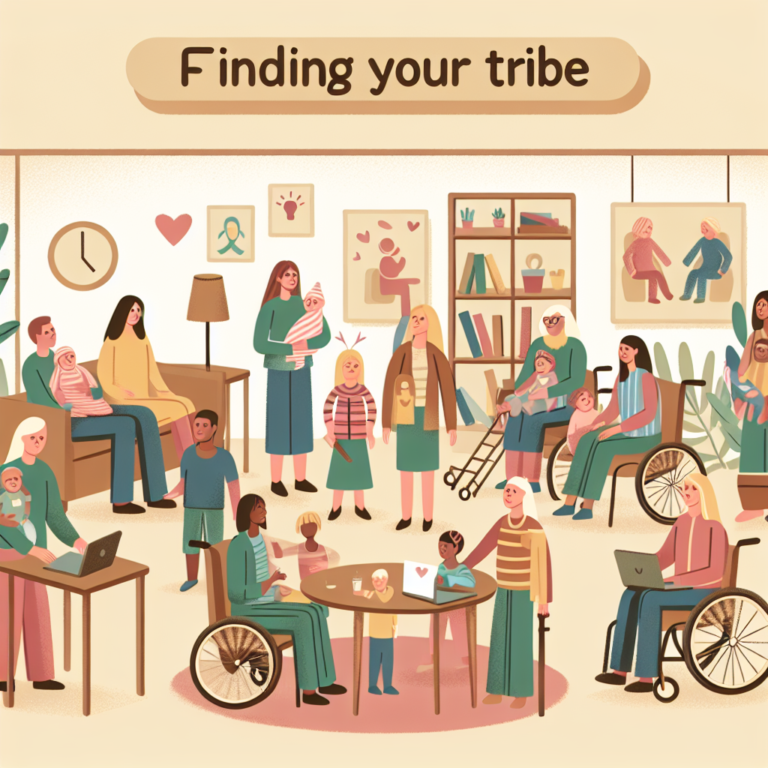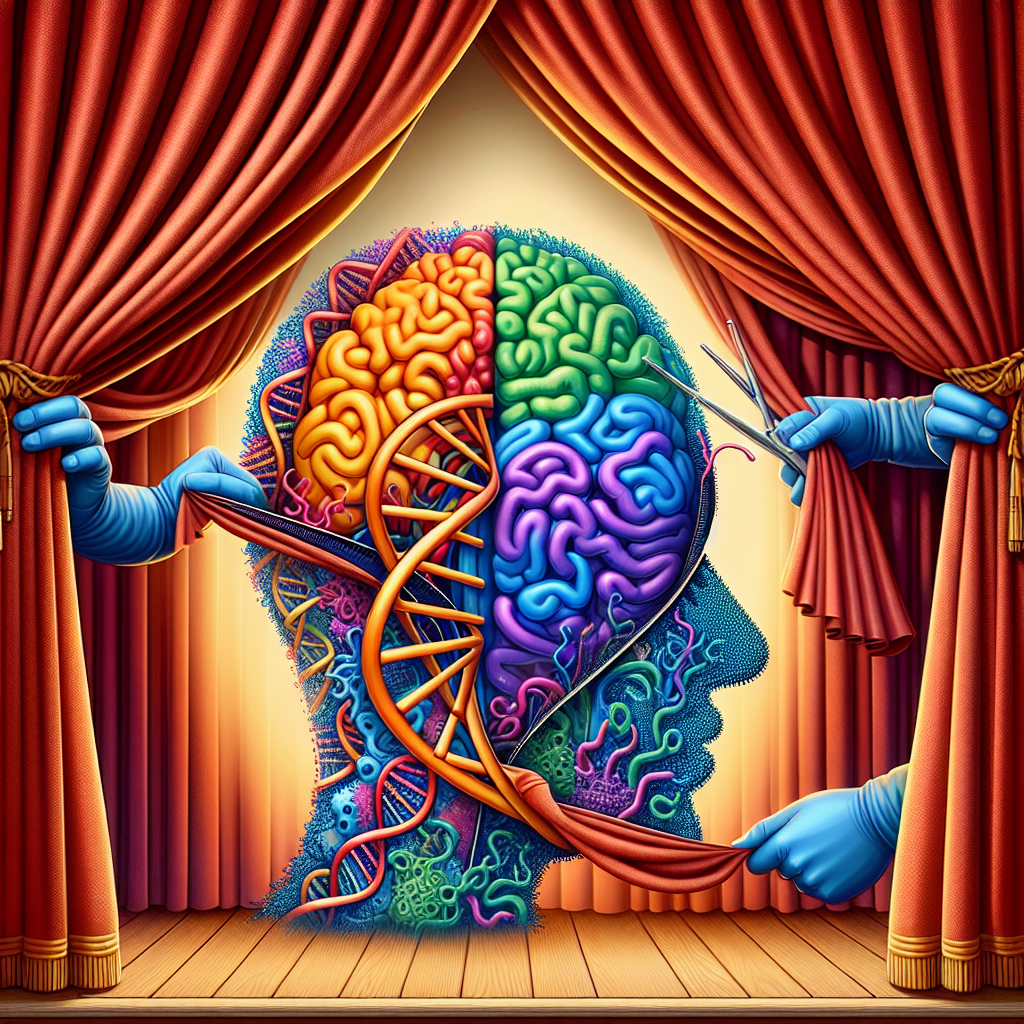
Behind the Curtain: Genetic Influences on Mental Health and Illness – The Ultimate Guide
Introduction
When you think about mental health, what’s the first thing that comes to mind? Is it a friend struggling with anxiety? Perhaps a family member diagnosed with depression? Mental health issues are pervasive, yet they remain shrouded in mystery. Today, we peel back the layers and explore a critical aspect rarely discussed: the genetic influences on mental health and illness.
Understanding the genetic underpinnings of mental health not only shines a light on the biological aspects of these conditions but can also guide effective treatments and interventions. With over 450 million people affected globally, it’s time to confront the reality: genetics plays a pivotal role in mental health. Welcome to a deep dive into Behind the Curtain: Genetic Influences on Mental Health and Illness.
The Genetic Blueprint
What Are Genes?
Genes are essentially the blueprint of life. They decide everything from our physical traits—like eye color and height—to more complex attributes, including our susceptibility to certain health conditions. They influence neurotransmitter levels, brain structure, and hormonal balance—key players in mental health.
Understanding Heritability
Heritability is a critical concept when discussing genetic influences on mental illness. It refers to the degree to which genetic factors contribute to variations in traits among individuals. For complex disorders like schizophrenia or bipolar disorder, heritability estimates can be as high as 80%.
Table 1: Heritability Estimates for Common Mental Illnesses
| Disorder | Heritability Estimate | Key Genetic Factors |
|---|---|---|
| Schizophrenia | 80% | COMT, DISC1 |
| Bipolar Disorder | 70-90% | ANK3, CACNA1C |
| Major Depressive Disorder | 37% | 5-HTTLPR, BDNF |
| Anxiety Disorders | 30-50% | SLC6A4, GABRA2 |
| Autism Spectrum Disorder | 80% | CHD8, DLGAP2 |
Understanding these estimates allows researchers and clinicians to pinpoint who might be at greater risk and why.
Case Study: The War Within
To illustrate these concepts, let’s look at a remarkable case study from a twin study involving more than 600 pairs of identical twins. Researchers Evan and Judith (pseudonyms) both developed depression in their teens. However, one twin experienced depressive episodes, while the other did not.
Analysis
This case helps illustrate the complex dance between genes and environment—known as the diathesis-stress model—in understanding mental illness. While both twins shared the same genetic risk factors, the environment played a crucial role in determining whether those risks would manifest as mental health disorders.
Environmental Interactions
Gene-Environment Interactions
Genes do not act in isolation. Environmental factors like stress, trauma, and lifestyle choices can significantly influence whether genetic predispositions lead to mental health issues.
For instance, individuals with specific gene variants (e.g., the enzyme 5-HTTLPR, linked to serotonin regulation) may be more susceptible to the effects of traumatic experiences, increasing their risk of developing anxiety or depressive disorders.
Chart 1: Interaction of Genes and Environment
[Chart showing risk levels of depression based on gene variants and stress exposure]
Protective Genetic Factors
Interestingly, certain genetic predispositions can serve as protective factors. Variations in the BDNF gene have been associated with resilience against depression in the face of adversity. This kind of research highlights the multifaceted nature of mental health.
The Role of Epigenetics
What is Epigenetics?
Epigenetics is the study of how behaviors and environment can cause changes that affect the way genes work, without altering the underlying DNA sequence. This burgeoning field is offering new insights into how life experiences can influence mental health across generations.
Research shows that stress, diet, and traumatic events can lead to epigenetic modifications, creating a ripple effect for future generations.
Case Study: The Next Generation
Consider a study of children born to mothers who experienced severe stress during pregnancy. These children exhibited changes in their stress-receptor genes, leading to heightened anxiety and depression levels. This illuminates the significance of the concept behind Behind the Curtain: Genetic Influences on Mental Health and Illness.
Real-world Applications
Understanding epigenetics can lead to tailored therapeutic interventions, focusing not only on genetic testing but also incorporating lifestyle changes that mitigate stress and promote mental well-being.
Genetic Testing and Its Implications
The Rise of Genetic Testing
With advancements in genetic testing technology, individuals now have the opportunity to understand their genetic risks for various mental health disorders. Companies like 23andMe and AncestryDNA provide genetic reports that can highlight predispositions for conditions like PTSD or depression.
Ethical Considerations
However, genetic testing raises ethical questions. For instance, what do individuals do with knowledge of their predispositions? Will it lead to stigma or discrimination?
Table 2: Pros and Cons of Genetic Testing
| Pros | Cons |
|---|---|
| Personalized prevention plans | Potential for anxiety over results |
| Tailored treatment options | Stigmatization |
| Enhanced understanding | Risk of genetic determinism |
The Future of Mental Health Treatment
Pharmacogenomics
As we delve deeper into the world of genetic influences, pharmacogenomics—the study of how genes influence an individual’s response to drugs—shows potential in customizing mental health treatments. For example, individuals with specific genetic markers may respond better to certain antidepressants.
Rising Awareness and Education
Incorporating genetic education into mental health awareness campaigns can empower individuals to seek help proactively. Understanding genetic risks can foster a more open dialogue about mental health in communities.
Conclusion
The intricate dance between genes and mental health is a fascinating yet complex narrative. By pulling back the curtain on these genetic influences, we’re equipped with knowledge that not only fosters understanding but can lead to innovative treatments and preventive measures.
As we continue to unveil the complexities of mental health, we empower ourselves and those around us to take charge of well-being. Whether through genetic insight or lifestyle choices, the journey to better mental health begins with understanding.
FAQs
1. What is the role of genetics in mental health?
Genetics significantly contribute to mental health by influencing susceptibility to disorders through hereditary traits and genetic mutations.
2. How can I find out if I have a genetic predisposition to mental health issues?
Genetic testing through services like 23andMe can reveal potential predispositions, but it’s ideal to consult a healthcare provider for interpretation and implications.
3. Are environmental factors more important than genetics in mental health?
Both are crucial; genetic predispositions can be moderated or triggered by environmental factors, making their interplay essential in understanding mental health.
4. Can genetics predict mental health outcomes?
While genetics can indicate risks, mental health is multi-faceted and impacted by lifestyle, environment, and individual choices.
5. What is epigenetics, and why is it important?
Epigenetics studies how environmental factors can change gene expression, showing us that while we may inherit certain genetic templates, our life experiences greatly influence their outcomes.
Long-Tail Keywords for SEO
- Genetic predisposition to mental illness
- Heritability of mental health disorders
- Role of genetics in anxiety
- Environmental effects on genetic mental health
- Understanding epigenetics in mental illness
By understanding the nuances of Behind the Curtain: Genetic Influences on Mental Health and Illness, we not only pave the way for innovative treatment options but also foster a culture of openness about mental health issues. The first step toward healing may simply be a recognition of our genes—and the power they hold.


